Question 21 The type of connective tissue that has a fluid m
Question 21
The type of connective tissue that has a fluid matrix is:
bone
blood
cartilage
dense areolar
3 points
Question 22
Uncontrolled division of cells is called:
metastasis
cancer
hyperplasia
tumor cell
3 points
Question 23
Choose the following that most accurately describes the function of blood.
transports oxygen and nutrients to cells
removes carbon dioxide/wastes from cells
distributes heat
protects from disease/prevent fluid loss
All of the choices are correct.
3 points
Question 24
Which of the overall functions of blood listed below is accomplished by the white blood cells through phagocytosis?
transport of oxygen
regulation of body temperature
defense
3 points
Question 25
The term that refers to excess tissue fluid build-up or swelling of tissues is:
hypertrophy
rubor
ischemia
edema
emphysema
3 points
Question 26
The five systems of the body that add or remove substances from the blood are the respiratory, digestive, cardiovascular, urinary and:
muscular
lymphatic
nervous
reproductive
3 points
Question 27
Choose the statement(s) that describe the cell theory.
All living things are made of cells.
Cells come only from pre-existing cells.
Cells must be aggregated.
All living things are made of cells and cells come only from pre-existing cells.
All of the choices are correct.
3 points
Question 28
A person who is B positive will have:
A antigens, antibody B, Rh antigen
B antigens, antibody B, Rh antigen
B antigens, antibody A, no Rh antigen
B antigens, antibody A, Rh antigen
B antigens, antibody B, no Rh antigen
3 points
Question 29
Which of the following blood cells engulfs pathogens?
red blood cells
white blood cells
platelets
3 points
Question 30
The liquid portion of blood is called:
plasma
effluvium
exudate
serosa
None of the choices are correct.
3 points
Question 31
The process whereby cells completely break down glucose to CO2 and water for energy is:
glycolysis
oxidative phosphorylation
cellular respiration
fermentation
3 points
Question 32
Which of the following processes occurs in the cytoplasm?
glycolysis
citric acid cycle
electron transport system
3 points
Question 33
Which of the following is required for facilitated diffusion to occur?
a concentration gradient
a carrier and concentration gradient
carrier and energy
vesicles
vesicle to membrane fusion
3 points
Question 34
The white flexible, strong fibers found in connective tissues such as the dermis of the skin are:
collagen fibers
reticular fibers
elastic fibers
3 points
Question 35
The final acceptor molecule in the electron transport system is:
glucose
water
carbon dioxide
oxygen
3 points
Question 36
The semi-fluid internal medium of a cell that dissolves molecules between the nucleus and cell membrane is called:
nucleolus
cytoplasm
nucleoplasm
cytomatrix
3 points
Question 37
The granular leukocyte that stains red is the:
neutrophil
eosinophil
basophils
monocyte
lymphocyte
3 points
Question 38
The proteins in the blood:
buffer blood pH
help fight disease
aid in blood clotting
help maintain osmotic pressure
All of the choices are correct.
3 points
Question 39
Which part of a neuron receives input?
dendrite
cell body
axon
3 points
Question 40
Which type of muscle tissue is bound end to end with intercalated discs?
skeletal muscle tissue
smooth muscle tissue
cardiac muscle tissue
| bone | ||
| blood | ||
| cartilage | ||
| dense areolar |
Solution
Answers:
(21) (b)
The type of connective tissue that has a fluid matrix is blood.
(22) (b)
Cancer is basically a disease of uncontrolled cell division.
(23) (e)
All of the choices are correct
(24) (c)
Defense
(25) (d)
The term that refers to excess tissue fluid build-up or swelling of tissues is edema.
(26) (b)
The five systems of the body that add or remove substances from the blood are the respiratory, digestive, cardiovascular, urinary and lymphatic.
(27) (d)
All living things are made of cells and cells come only from pre-existing cells.
(28) (d)
A person who is B positive will have B antigens, antibody A, Rh antigen.
(29) (b)
White blood cells engulfs pathogen.
(30) (a)
The liquid portion of the blood is called plasma.
(31) (c)
The process whereby cells completely break down glucose to CO2 and water for energy is cellular respiration.
(32) (a)
Glycolysis occurs in the cytoplasm.
(33) (b)
A carrier and concentration gradient is required for facilitated diffiusion to occur.
(34) (a)
The white flexible, strong fibers found in connective tissues such as the dermis of the skin are collagen fibers.
(35) (d)
The final acceptor molecule in the electron transport system is oxygen.
(36) (b)
The semi-fluid internal medium of a cell that dissolves molecules between the nucleus and cell membrane is called cytoplasm.
(37) (b)
The semi-fluid internal medium of a cell that dissolves molecules between the nucleus and cell membrane is called eosinophil.
(38) (e)
All the above are correct.
(39) (a)
Dendrites in neurons receives the input.
(40) (c)
The cardiac muscle fibers are joined end to end by specialized junctional regions called the intercalated discs.
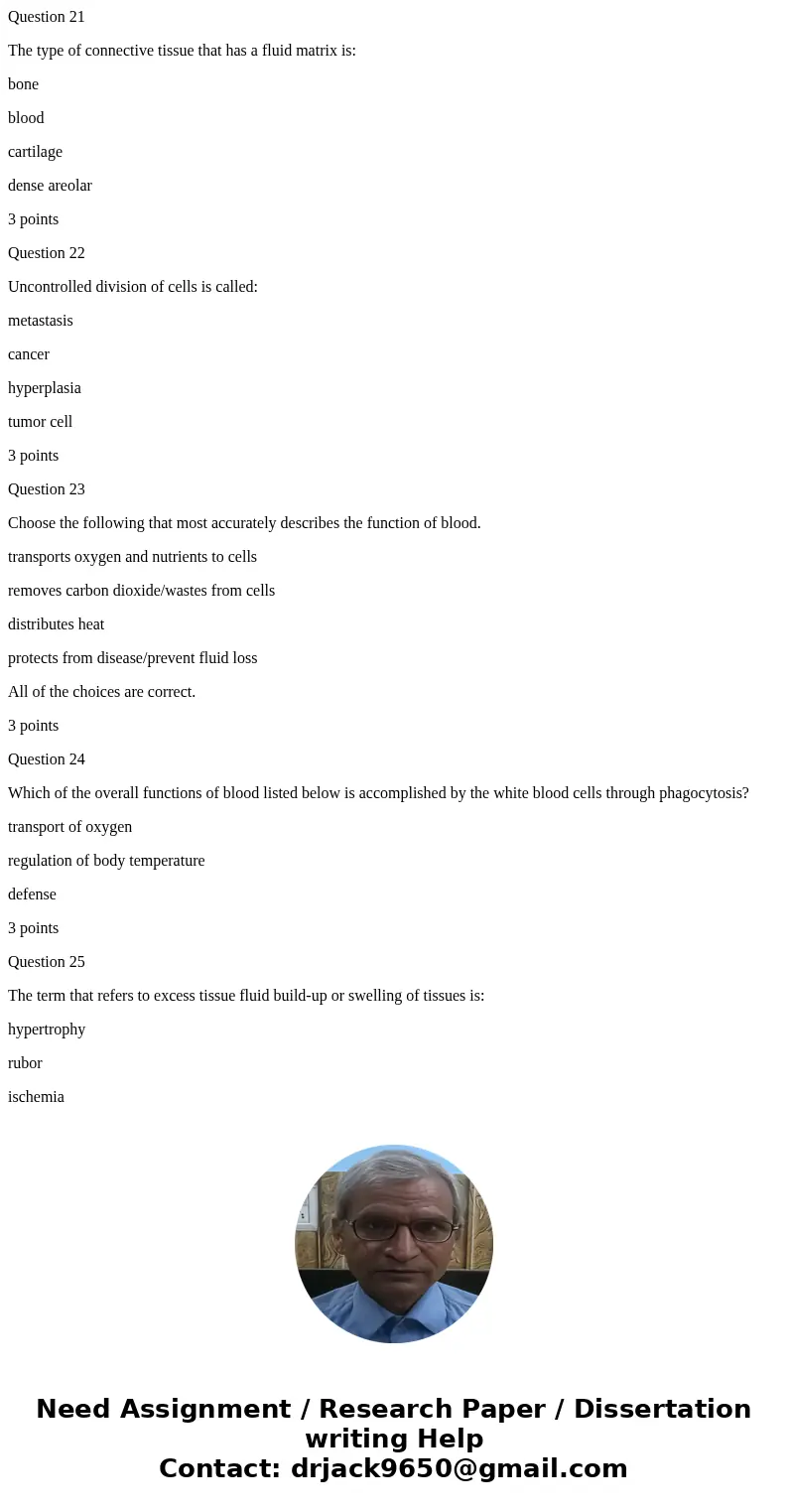
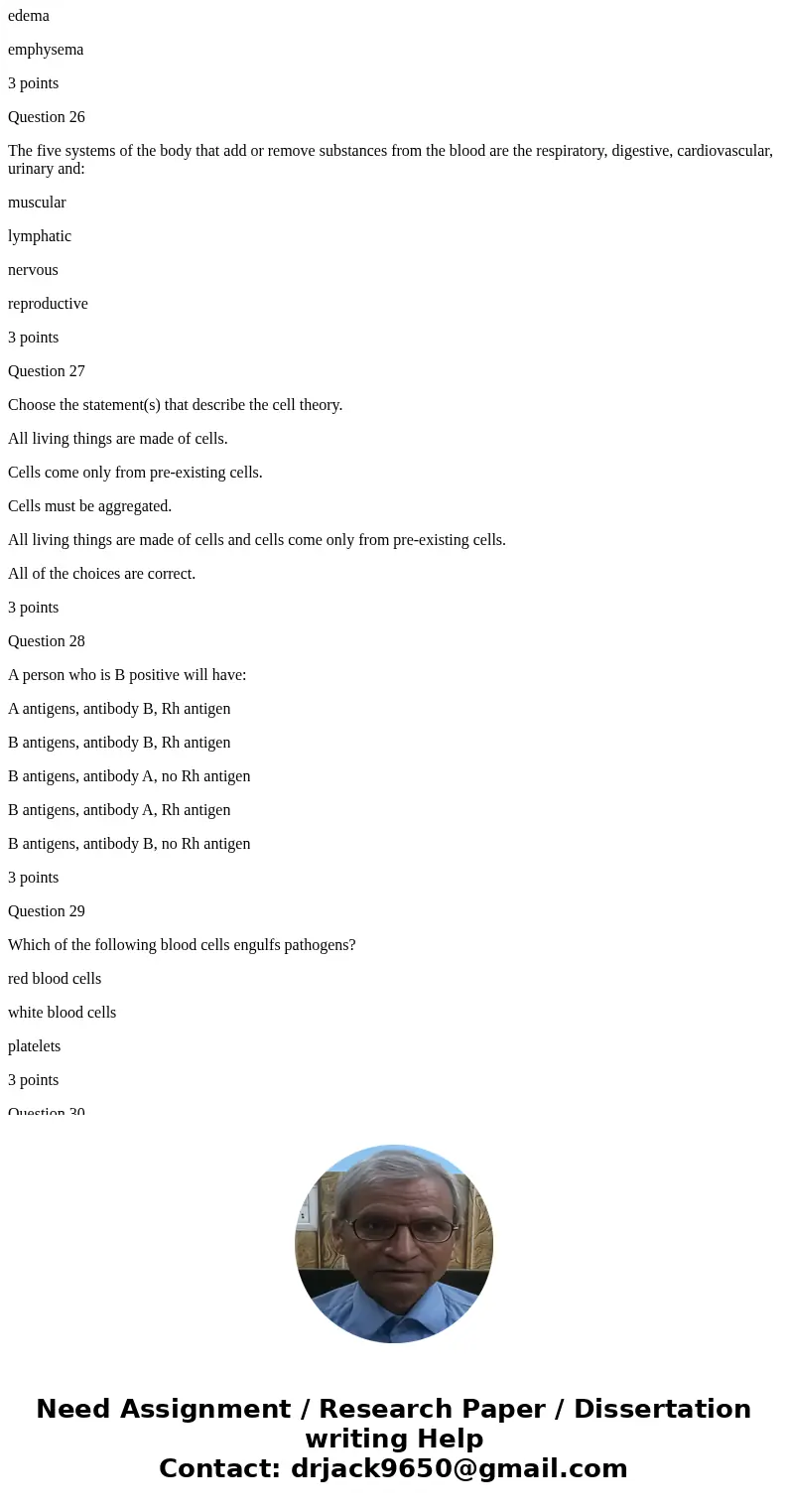
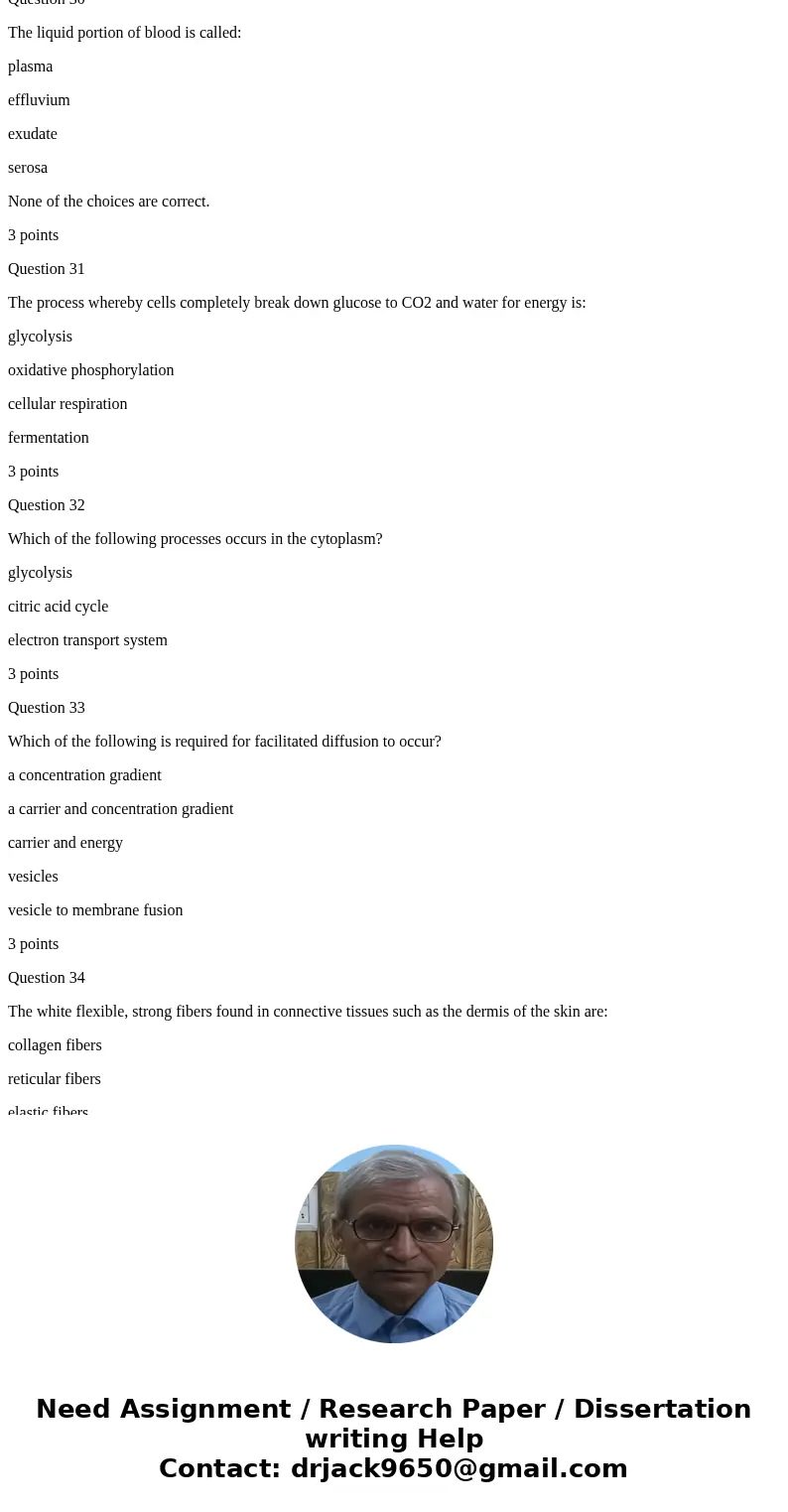
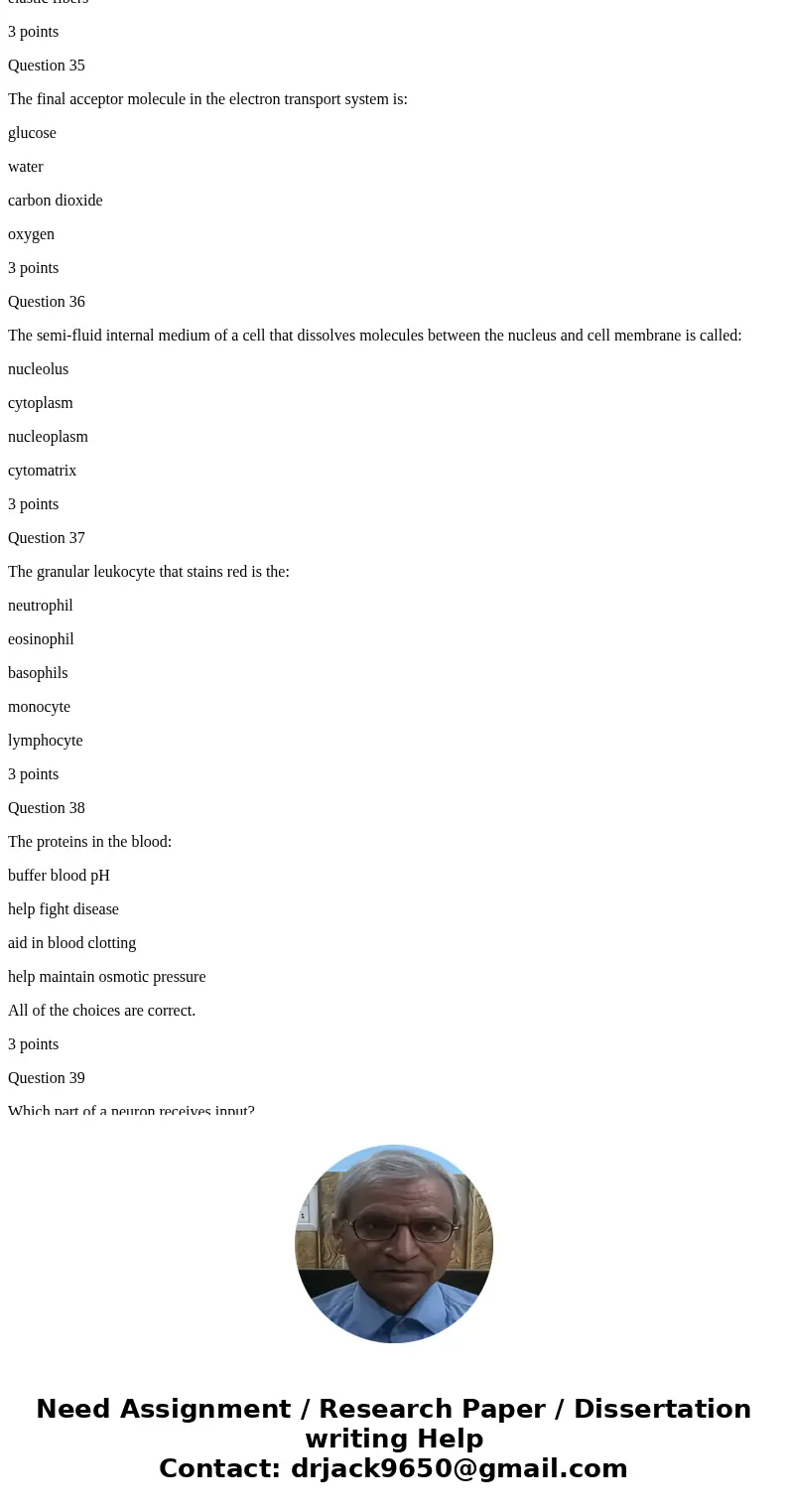
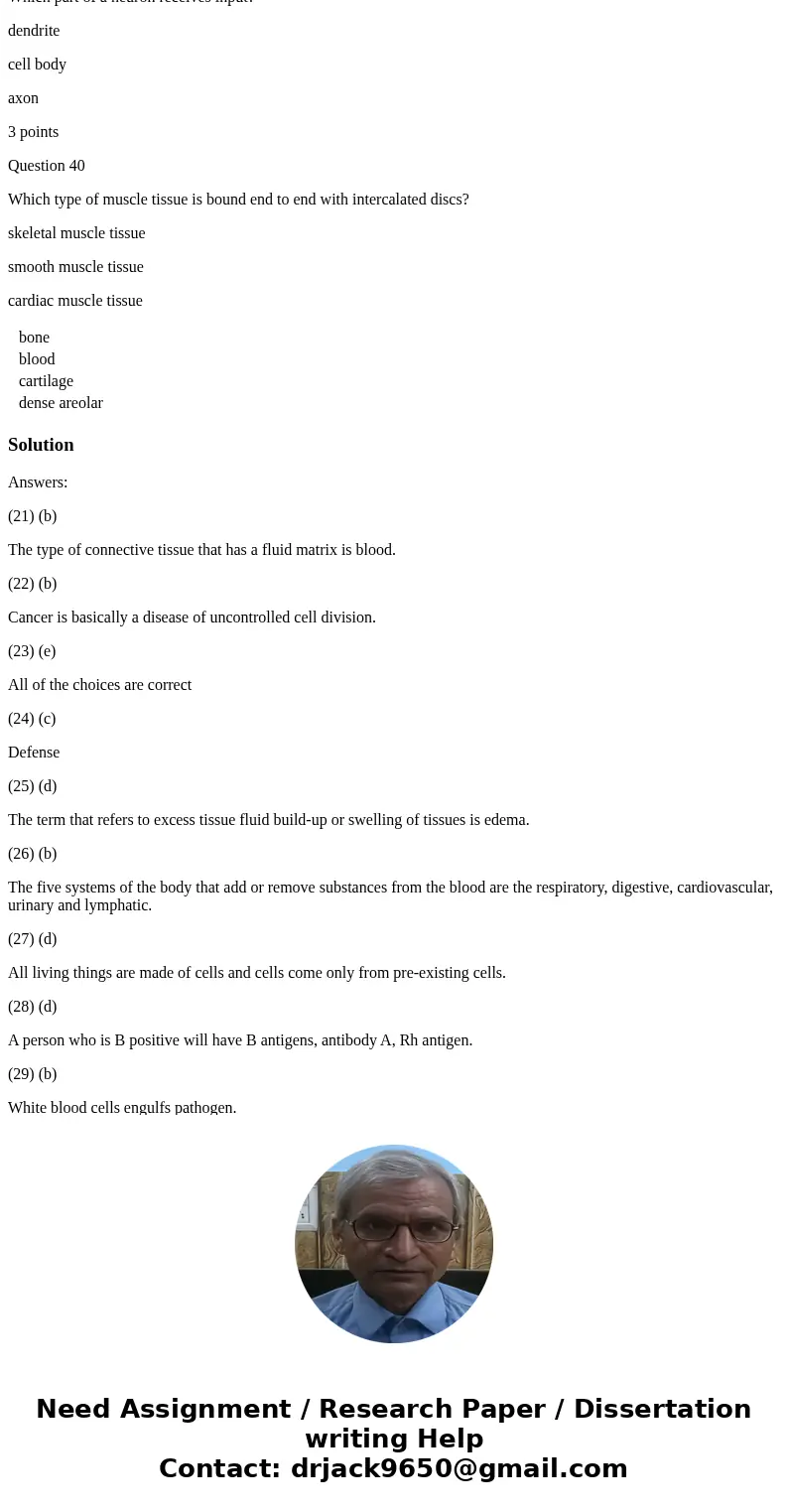
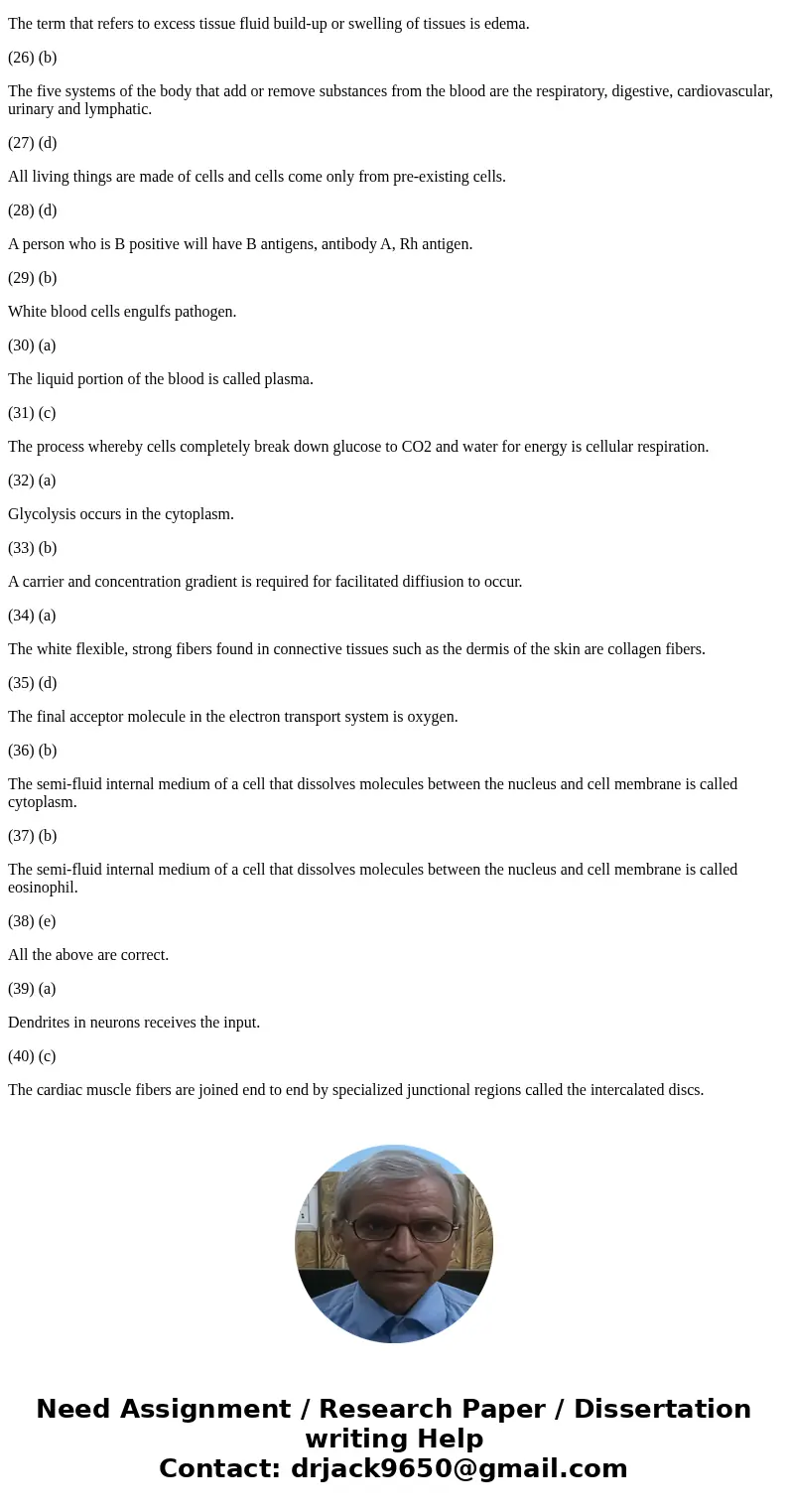
 Homework Sourse
Homework Sourse